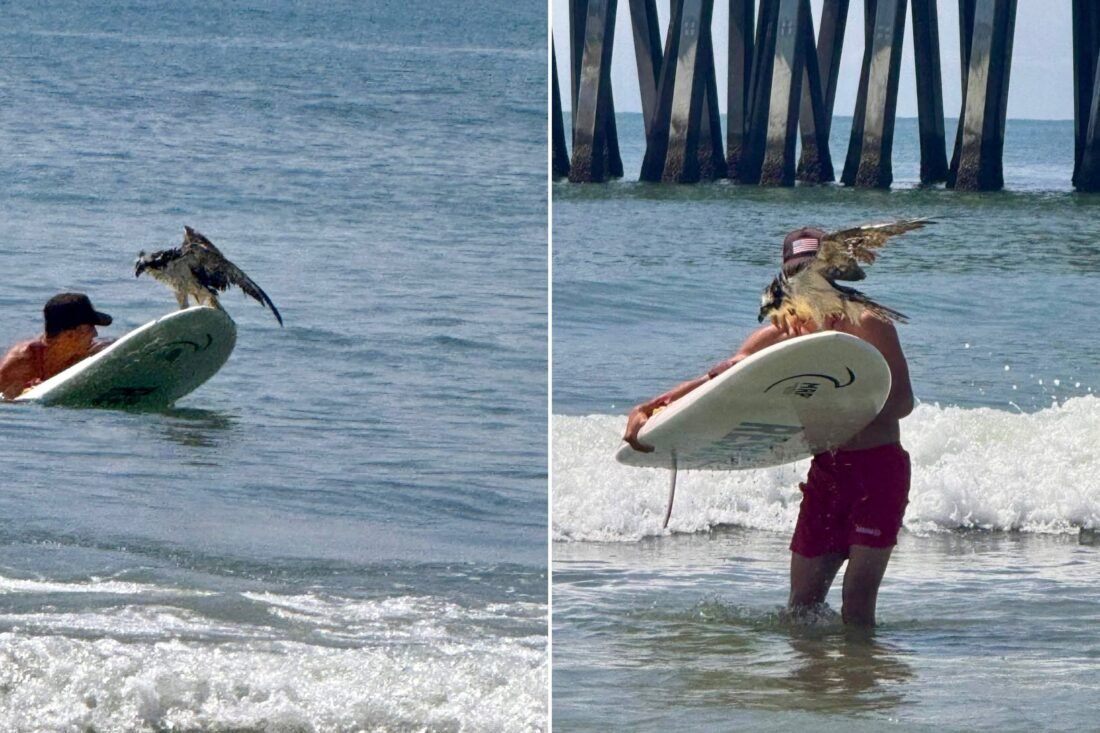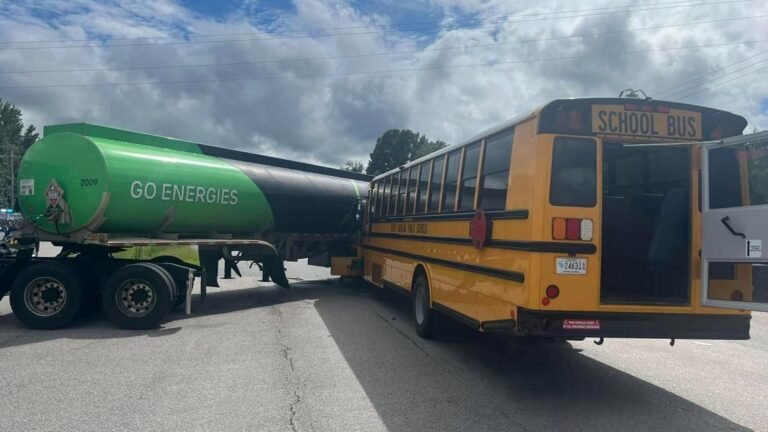Teen Lifeguard Saves Entangled Osprey Off Folly Beach in Remarkable Wildlife Rescue
FOLLY BEACH, S.C. — A routine day on the coast turned into a dramatic wildlife rescue when 17-year-old lifeguard Richard Miller noticed an osprey struggling in the surf. What initially looked like a bird trying to fly turned out to be a dangerous entanglement — the osprey was caught in fishing hooks and unable to escape.
According to a report by One Green Planet, Miller acted quickly, grabbing a surfboard and paddling out to help the distressed bird. His lifeguard training kicked in as he safely guided the osprey back to shore, dodging waves that could have further injured the animal.
Fishing Hooks Found Embedded in Osprey’s Body
Once back on land, Miller contacted wildlife responders, who arrived from the Center for Birds of Prey, a Charleston-based rehabilitation center specializing in injured raptors. Staff transported the osprey for medical evaluation, where it was found to have three fishing hooks embedded in its body, including one lodged in a wing.
Fortunately, no bones were broken, and veterinarians were able to remove the hooks and begin treatment. Officials expect the bird to recover and be released back into the wild.
“A significant number of birds in this area are caught in fishing lines,” said Michael Bradley, Parks Manager at Folly Beach. “It’s a common hazard, especially near the pier, where birds like ospreys hunt for fish.”
Trained Lifeguards and Wildlife Partnerships Make a Difference
This incident highlights an often-overlooked aspect of beach safety: lifeguards are trained to handle wildlife emergencies. At Folly Beach, teams work closely with the Center for Birds of Prey, which rescues nearly 1,000 injured birds each year, many harmed by improperly discarded fishing gear.
Miller’s quick action reflects a broader effort across South Carolina to prepare coastal staff for environmental incidents, especially as human activity increasingly overlaps with fragile habitats.
“Thanks to Miller’s bravery and awareness, this osprey has a real chance at survival,” wildlife officials noted.
Fishing Gear Continues to Threaten Coastal Birds
Ospreys are fish-eating raptors that nest along the South Carolina coastline. While their populations have rebounded in recent decades, they remain vulnerable to entanglements caused by fishing lines, plastic debris, and hook injuries. The Folly Beach case is one of many that highlight the importance of proper disposal and public education.
Officials urge residents and tourists alike to be mindful of discarded gear and report any injured wildlife immediately.
Have you seen wildlife in distress on South Carolina’s shores?
Share your story or tips for protecting our coastlines in the comments at SaludaStandard-Sentinel.com — and help others learn how to take action.







